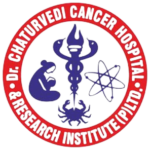Lung cancer is a type of cancer that starts in the cells of the lungs. It is the leading cause of cancer-related deaths worldwide for both men and women. There are two main types of lung cancer: non-small cell lung cancer (NSCLC) and small cell lung cancer (SCLC). Non-small cell lung cancer is more common, accounting for about 85% of all lung cancer cases, while small cell lung cancer accounts for the remaining 15%.

Risk Factors: Smoking tobacco is the leading cause of lung cancer. Other risk factors include exposure to secondhand smoke, exposure to radon gas, exposure to asbestos and other carcinogens (such as arsenic, chromium, and nickel), a family history of lung cancer, and a history of certain lung diseases, such as chronic obstructive pulmonary disease (COPD).
Symptoms: Symptoms of lung cancer may include a persistent cough, coughing up blood, chest pain, shortness of breath, hoarseness, unexplained weight loss, fatigue, and recurrent respiratory infections. However, many people with early-stage lung cancer may not experience any symptoms, and the disease may be detected incidentally on imaging tests.
Diagnosis: Lung cancer is typically diagnosed through a combination of methods, including imaging tests (such as chest X-ray, CT scan, or PET scan) and biopsy (removal and examination of a sample of lung tissue). The biopsy helps determine the type and subtype of lung cancer, which is important for treatment planning.
Treatment: Treatment for lung cancer depends on factors such as the type and stage of the cancer, as well as the individual’s overall health and preferences. Treatment options may include surgery, radiation therapy, chemotherapy, targeted therapy, immunotherapy, or a combination of these approaches. Treatment decisions may be guided by factors such as tumor size, location, spread, and the presence of specific genetic mutations or biomarkers.
Prognosis: The prognosis for lung cancer varies depending on factors such as the stage of the cancer, the type and subtype of lung cancer, the individual’s overall health, and how well they respond to treatment. Overall, the prognosis for lung cancer tends to be poorer compared to some other types of cancer, particularly when the cancer is diagnosed at an advanced stage.
Prevention: Quitting smoking and avoiding exposure to tobacco smoke and other known carcinogens are important ways to reduce the risk of lung cancer. Additionally, testing homes for radon and minimizing exposure to asbestos and other occupational carcinogens can help lower the risk of developing lung cancer.
Screening: Screening for lung cancer with low-dose CT scans may be recommended for certain individuals at high risk, such as current or former heavy smokers. Screening aims to detect lung cancer at an early stage when it is more treatable and may improve survival rates.



